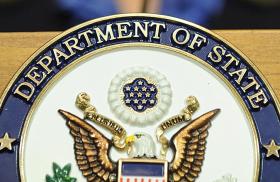
- Policy Analysis
- Fikra Forum
Is Mosul Headed for a Second Fall?

During the nine-month campaign to wrest the Nineveh Governorate and its capital Mosul from Islamic State (IS) completed in 2017, much of Mosul’s infrastructure was destroyed. Although life has returned more or less to normal in the eastern part of the city, scenes of destruction remain prevalent in the city’s west, with the economic prosperity and physical safety of its residents far from guaranteed. Even with promises from the international community and the Iraqi federal government to support the reconstruction process, these vital sectors must be strengthened locally if the city is to survive. This is especially so because the city is emerging from destruction not limited solely to its infrastructure or architecture: more dangerous is the destruction of thought that will bog the city down with no real or true revival.
On the economic front, the collapse of Mosul’s infrastructure has nearly destroyed the ability of authorities to provide basic services. According to a 2018 report by the Norwegian Refugee Council, over 380,00 of the city’s inhabitants are homeless, while around 54,000 of its houses are in ruins and its west side remains almost entirely destroyed. Many have been unable to return to their homes because of the destruction, while those who have done so are having difficulty obtaining drinking water and health services. Moreover, as a result of the tariffs imposed by the central government on goods entering the city from the Kurdistan Region, prices and unemployment are on the rise. Adding to these challenges is limited mobility between sections of the city, with four of the five bridges connecting the city's two halves between the Tigris river still unusable.
To be sure, the residents of Mosul are not blind to the major deficiencies in the rebuilding process and are displeased with its slow pace. Unfortunately, red tape and an inability to act quickly to take advantage of opportunities has resulted in the delay of billions promised by foreign countries at the Kuwait International Conference for Reconstruction of Iraq from actually benefiting the lives of Moslawis.
Furthermore, due to Baghdad’s inefficiency in dealing with foreign donors, allocation of funds pledged by foreign governments has been slow and unreliable. Such is the case with the French grant to rebuild the University of Mosul, the UAE grant to rebuild the al-Nuri Mosque and the al-Hadba minaret, and other projects to preserve archeological and religious sites. All the while, the widespread corruption in Iraq has kept international investors away. And while over a hundred million dollars of Iraq’s 2019 federal budget—approved February 4 by President Barham Salih—is allocated to the Nineveh Governorate, this sum is not nearly sufficient to rebuild the parts of this heavily-populated governorate impacted during the war.
But economic hardship is not the only obstacle that could thwart Mosul’s revival. Over the past few months, security forces have announced the arrest of dozens of IS members in Mosul, claiming that the group’s cells remain effective in the city and that, most of the time, investigation operations lead to arrests among IS ranks. Moreover, according to the influential cleric Muqtada al-Sadr, the presence of terrorist sleeper cells operating in the liberated areas may play a role in destabilizing security in the province, especially since IS continues to rely on its reawakening and its promise to return and control the governorate once again. The Nineveh Governorate has already seen a series of security breaches, including car bomb explosions and IEDs, directed at influential figures in the city and raising questions about the reality of Mosul’s security situation.
To make matters worse, the Popular Mobilization Forces (PMF), which remain the most powerful military presence in the city, mistakenly view Mosul’s inhabitants as a collective, guilty of welcoming and embracing IS. This has made Moslawis continually fearful of the possibility of arrest. Due to the mutual lack of trust, the PMF interferes in the process of investment in the city by disrupting internet networks, the distribution of land, and commercial markets.
On the other hand, al-Hashd al-Ashair—the local and tribal mobilization forces that fought IS and seized territory with U.S. support—have grown weaker, with their supplies running short. Nowadays, these local tribal forces are comprised of about 7,000 members–about half of its previous size. More support should be directed towards these latter forces, who draw more heavily from the local population and are thus more aligned with the interests of Mosul’s civilians.
In light of Baghdad’s inefficiency, endemic corruption on the federal level, and the PMF’s misguided views of Mosul’s residents, the people of Mosul should be allowed greater local control over the reconstruction process. The city will not be safe until its people, police, and local mobilization forces, who played a crucial role in the defeat and expulsion of IS, are given the opportunity to lead their own reconstruction process with limited interference from outside Iraqi forces. Furthermore, for the reconstruction process to succeed, local authorities must be allocated resources so that they can rebuild the city. To maintain the accountability of these authorities, regular elections must be held to choose provincial, district, and regional councils.
During the difficult campaign against IS, the residents of Mosul have shown that they have the resolve that would be necessary to revive their city. It is up to the Iraqi federal government and the international community to ensure that they have the means to do it.


